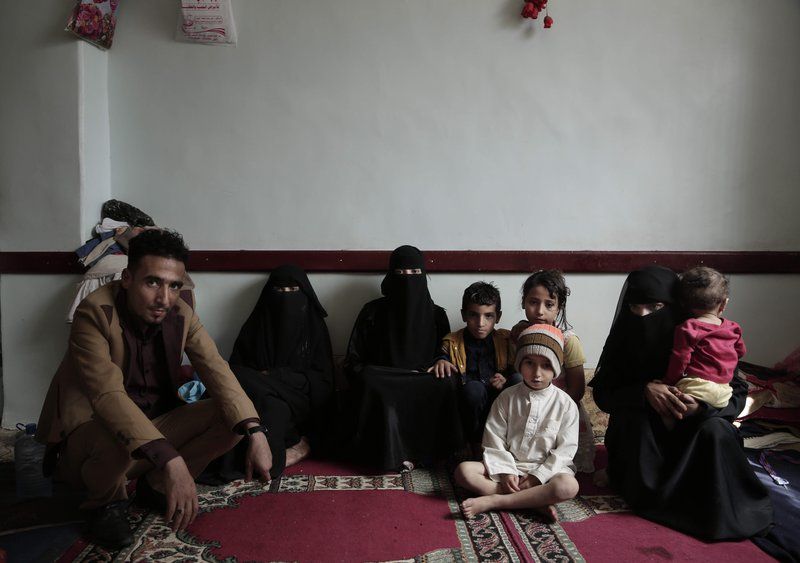A team of Associated Press journalists led by Pulitzer Center grantees Maggie Michael, Maad al-Zekri, and Nariman El-Mofty has won a Pulitzer Prize for International Reporting.
Michael and her colleagues were recognized by the Pulitzer jury “for a revelatory yearlong series detailing the atrocities of the war in Yemen, including theft of food aid, deployment of child soldiers and torture of prisoners.” A Pulitzer for International Reporting was also awarded to a Reuters team for its reporting on the Rohingya crisis.
The Pulitzer Center supported the AP’s reporting project that resulted in a series of ground-breaking stories examining the main drivers of the war and documenting the plight of civilians caught in the crossfire. Often at great personal risk, the AP journalists exposed war crimes and human rights abuses, many of them committed with the complicity and support of U.S. allies in the region.
“We can’t overstate how thankful we are for the Pulitzer Center’s support,” Associated Press Executive Editor Sally Buzbee said. “Yemen is one of the most dangerous places in the world to report on. A grant like this one makes all the difference in terms of allowing us to make extra trips and to provide sustained coverage. It means we can free up journalists like Maggie and Nariman to focus on digging in and doing deeper journalism in a place like Yemen, while we keep our spot news report going across the broader Middle East. Especially in a place like the Middle East, these extra resources are so precious.”
Jon Sawyer, Pulitzer Center executive director, said the AP reporting on Yemen underscored the value of long-term commitment to on-the-ground reporting and the institutional support of a dedicated news organization. “Again and again the AP has led the way,” Sawyer said, “in exposing to the world Yemen’s dirty war.”
In an interview on CNN's Reliable Sources podcast, El-Mofty offered some wise advice to her fellow journalists: "Work so hard, and don't think of the prizes. You have to love it. You have to be there 100%. Respect people like they're your own. Don't victimize people; personalize the story. And keep going back. You're going to fail a lot, and it's okay. But if you love it, you'll just keep pushing."
In addition to the Pulitzer Prize, the AP’s reporting from Yemen has also been recognized with several citations from the Overseas Press Club, including the Olivier Rebbot Prize for best photography, and by the Investigative Reporters and Editors’ (IRE) Tom Renner Award.
Over the past two years, the Pulitzer Center has supported a number of significant reporting projects in Yemen, among them Jeffrey Stern’s award-winning New York Times Magazine piece that tracks the journey of an American-made bomb across the world to Yemen, Marcia Biggs and Javier Manzano’s four-part series for the PBS NewsHour that is a finalist, along with other NewsHour Yemen reporting, for a Peabody Award, and the reporting by Iona Craig for The Intercept on a botched U.S.-supported raid in January 2017 that won a George Polk Award.
The Pulitzer Center is working with the AP and other news partners to bring the Yemen story to its network of universities, community colleges, and secondary schools across the U.S.
The Pulitzer Center, a non-profit news organization founded by Sawyer in 2006, has no connection with the Columbia University board that administers the Pulitzer Prizes.
“We felt the conflict in Yemen wasn’t getting the attention it needed,” Sawyer said, “especially given the high number of civilian casualties and the U.S. support for the faction in the war led by Saudi Arabia and allied Arab Gulf states.”
Sawyer founded the Center in 2006 after a 31-year career with the St. Louis Post-Dispatch, the newspaper owned for more than a century by the Pulitzer family.
“We created the Center in hopes of sustaining and extending the commitment of the first Joseph Pulitzer and his heirs to journalism that matters,” Sawyer said. “It’s thrilling to have the Center’s collaboration with the Associated Press on the tragic, under-reported war in Yemen honored by the prize that was created in Joseph Pulitzer’s name.”
Read the announcement from the Associated Press
